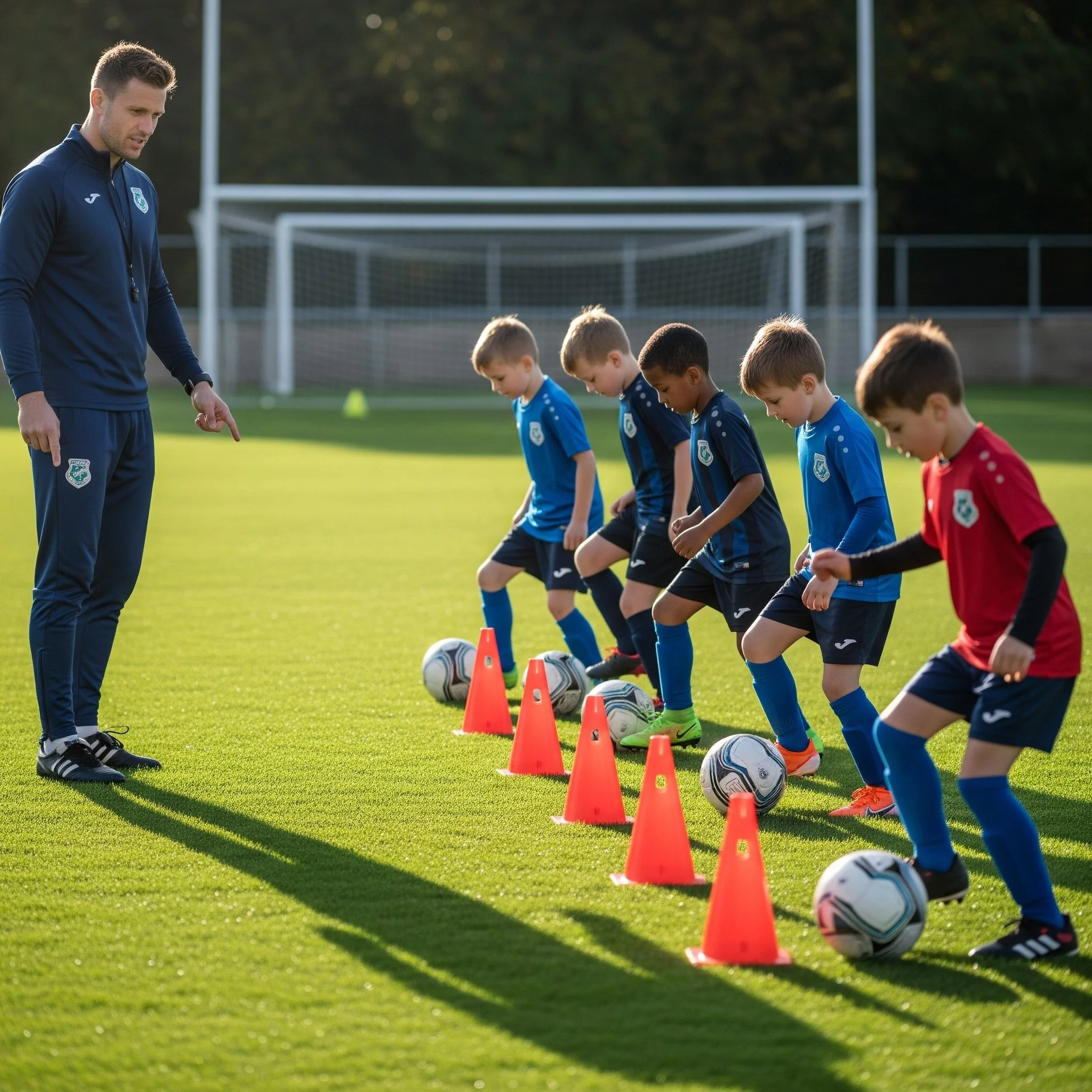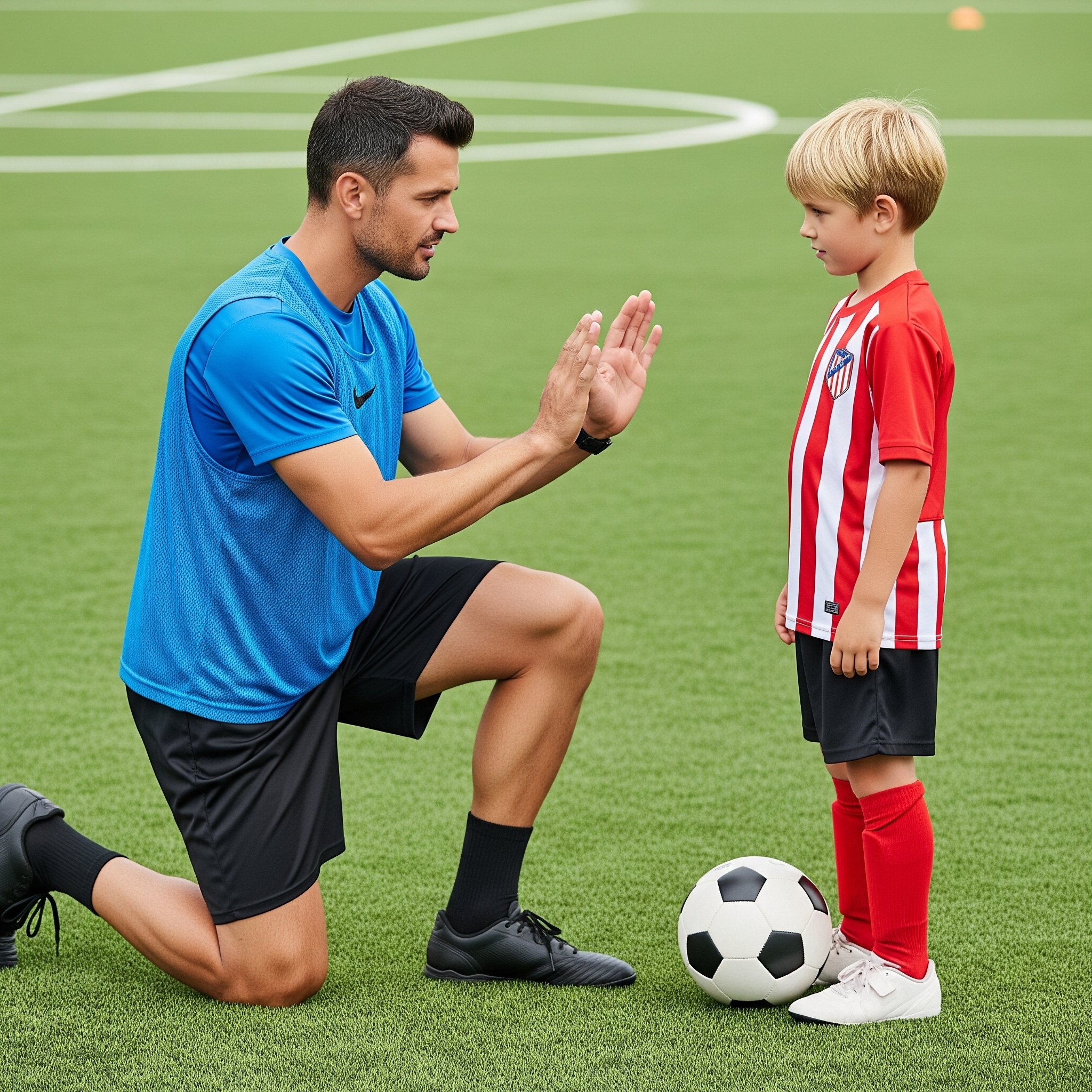ROI for Parents in Competitive Youth Soccer
Having been involved in competitive youth soccer for over a decade, both as a coach and now as a parent whose own children are lacing up their cleats, I’ve seen this world from every angle. I’ve learned that the most rewarding path isn't just about winning games; it’s about a child’s long-term player development. It’s easy to get caught up in the thrill of trophies and the prestige of a club, but my experience tells me that prioritizing development over competition is the most valuable investment we can make in our young athletes.
A question I propose for you as you read is as follows: If your child’s athletic and soccer pathway was a financial asset, would it be appreciating or depreciating? You are spending the time, effort, and resources for this purpose. Evaluate if you are getting the ROI that you are looking for in their soccer development pathway.
The Real Goal: Development
Initially, I was drawn to the excitement and prestige of big, brand-name clubs. What I experienced through working with the likes of these is that the focus is typically on the “travel soccer experience”. I recognized that travelling to different cities to play tournaments and matches often comes at the expense of genuine youth soccer development. These players are lacking the foundational abilities to continue to grow and move to the next level.
I recognized that the best training environment for each child might not be the one that everyone else is doing. There might be an organization that is less “sexy” but is creating the ideal training environment for youth soccer players to develop. Don’t just take my word for it - The data favors the club that builds a strong physical and technical foundation and tracks these metrics year over year consistently produces players who go on to pursue higher level playing opportunities.
When it comes to the youth soccer training schedule, balance is key. There needs to be a significant focus on soccer training vs games. A team that plays too many games with minimal training time is likely sacrificing the individual and team-based drills needed to master core skills like dribbling, passing, and shooting. It’s in these sessions that players learn simple but crucial skills, like proper running and jumping, to avoid injury and develop into a well-rounded athlete. This is what truly drives long-term player development.
How to Choose the Best Soccer Club for Your Child
So, let's say you've got ten grand to drop on soccer for your kid each year. What are you looking to see from that investment? Measurable improvement and an understanding of where they stand on their player pathway I presume. Let’s keep this central as we dive into the non-negotiables.
You’ll want to look for a development-focused club. When you talk to coaches or directors, ask about their philosophy. Do they talk about player development in youth sports or just winning championships? A great club will have a clear plan for your player’s holistic growth, focusing on individual skill acquisition before trying to implement complex team tactics. The club's philosophy should also include a clear player pathway. A club that prioritizes soccer development vs competition will have a strong, transparent philosophy, especially for younger age groups. This pathway should be supported by objective data and subjective feedback, which are both crucial for helping players understand where they are on their journey.
You should also take a close look at the training curriculum. A good organization will have a structured program that emphasizes soccer skill development. Don't be afraid to ask for details about their practice plans. Are they focused on small-sided games to maximize touches on the ball, or large-group drills? A strong focus on small-sided games, along with strength and conditioning, is a great sign. The coaches themselves are also key. They’re the ones who will directly impact your child's experience, so look for those who are great teachers and create a positive learning environment where players feel safe to make mistakes and learn from them.
It's also helpful to differentiate between a soccer academy vs soccer club. While the terms are sometimes used interchangeably, a true soccer academy often has a more intensive and structured approach to training with a stronger emphasis on individual skill. A soccer club might be more focused on team success. Knowing the difference can help you choose the right environment for your child's goals.
The Long-Term View
Choosing a club that emphasizes youth athlete development over short-term results is a long-term investment in your child's soccer journey. The goal is to build a player who is technically proficient, tactically smart, and loves the game. The pros and cons of tournament soccer are clear: while they can be exciting, the constant travel and pressure to win can detract from the fundamental work of skill building. Focusing on the youth soccer training frequency and the quality of those sessions will yield far better results than chasing trophies. By finding a club that shares these values, you will set your child up to achieve the highest levels possible. Happy hunting!



